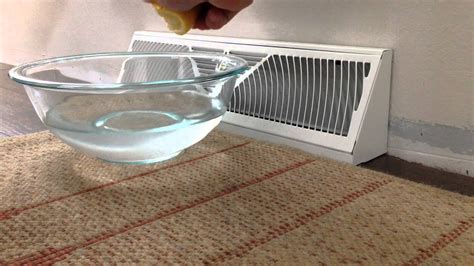How To Increase Room Humidity
Ronan Farrow
Apr 01, 2025 · 3 min read

Table of Contents
How to Increase Room Humidity: A Guide to a More Comfortable Home
Maintaining the right humidity levels in your home is crucial for both your comfort and your health. Dry air can lead to irritated skin, respiratory problems, and even damage to your furniture. Conversely, excessively humid air can foster mold and mildew growth. This guide will help you understand how to increase room humidity when the air gets too dry, focusing on safe and effective methods.
Understanding Humidity Levels
Before diving into solutions, it's essential to understand what constitutes comfortable humidity. Ideally, indoor humidity should stay between 30% and 50%. Levels below 30% are considered dry, while levels above 50% can become too humid. You can use a hygrometer to accurately measure the humidity in your home.
Signs You Need to Increase Humidity
Several signs indicate that your home is too dry:
- Dry skin and lips: This is a common and easily noticeable symptom of low humidity.
- Static electricity: Increased static cling to clothing or furniture is a telltale sign of dry air.
- Cracked wooden furniture: Low humidity can cause wood to shrink and crack.
- Nosebleeds: Dry air can irritate nasal passages, leading to nosebleeds.
- Respiratory issues: Dry air can worsen symptoms for those with asthma or allergies.
Effective Ways to Increase Room Humidity
There are several effective ways to increase the humidity in your room, ranging from simple DIY solutions to more sophisticated humidifiers.
1. Using a Humidifier
Humidifiers are the most effective way to increase room humidity. They come in various types, including:
- Cool-mist humidifiers: These are generally safer and quieter than warm-mist humidifiers.
- Warm-mist humidifiers: These humidifiers produce a warm vapor, which can be more effective at humidifying larger spaces. However, they pose a burn risk, especially for households with young children.
- Ultrasonic humidifiers: These use ultrasonic vibrations to create a fine mist. They are generally quiet and energy-efficient.
Choosing the Right Humidifier: Consider the size of the room and your budget when selecting a humidifier. Always follow the manufacturer's instructions for cleaning and maintenance to prevent mold growth.
2. Boiling Water
A simple and inexpensive method is to boil a pot of water on the stove. The steam released will add moisture to the air. However, this method is not very effective for long-term humidity control.
3. Houseplants
Houseplants naturally release moisture through transpiration. While not a primary solution, adding more plants to your home can contribute slightly to increased humidity.
4. Wet Towels
Hanging damp towels on radiators or in front of a fan can also increase humidity. However, this is a temporary solution and less effective than using a humidifier.
5. Indoor Water Features
Small indoor fountains or aquariums can add a touch of beauty to your home and subtly increase humidity. However, this method is only suitable for smaller spaces.
Maintaining Optimal Humidity Levels
Once you've increased the humidity, it's essential to maintain optimal levels. Regularly monitor the humidity levels using a hygrometer and adjust your methods accordingly. Remember to clean your humidifier regularly to prevent the growth of mold and bacteria. Proper ventilation is also vital to avoid excessively humid conditions.
By understanding the signs of low humidity and employing these effective methods, you can create a more comfortable and healthier living environment. Remember to consult a healthcare professional if you have persistent respiratory issues or concerns about indoor air quality.
Featured Posts
Also read the following articles
| Article Title | Date |
|---|---|
| How To Know When God Is Testing You | Apr 01, 2025 |
| How To Grow Your Small Business Pdf | Apr 01, 2025 |
| How To Induce Labor In Goats Naturally | Apr 01, 2025 |
| How To Protect Inheritance From Spouse | Apr 01, 2025 |
| How To Hang Christmas Lights With Gutter Covers | Apr 01, 2025 |
Latest Posts
Thank you for visiting our website which covers about How To Increase Room Humidity . We hope the information provided has been useful to you. Feel free to contact us if you have any questions or need further assistance. See you next time and don't miss to bookmark.
